- Home Page
- Company Profile
-
Our Products
- Fiberglass and Insulation Sleeves
- Fire Resistant Sleeve
- Insulation Sleeves
- Polyester Expandable Braided Sleeves
- SRBP Tubes
- Polyurethane Fiberglass Sleeves 1.5 kv
- Acrylic Fiberglass Sleeving
- Varnished Fiberglass Sleeve F Class
- Fire Sleeves
- Polyurethane Fiberglass Sleeve
- PVC Coated Fiberglass Sleeve
- Silicone Coated Fiberglass Sleeve
- Polyurethane Coated Fiberglass Sleeves
- Fiberglass Sleeve ( China Sleeve )
- Fiberglass Sleeving B Class
- Nomex Paper and Electrical Insulation Papers
- Laminated Fleece Paper
- Eurotherm Laminated Nomex Paper NPN
- Pure Aramid Paper
- Electrical Insulating Paper
- Laminated Aramid Paper
- Saturated Fleece Paper
- DuPont Nomex Paper
- Saturated Fleece Paper
- Insulating Kraft Paper
- Insulation Pressboard
- Laminated Nomex
- Electrical Insulation Papers and Laminates
- Pure Aramid (Nomex) Paper
- Laminated Fleece
- Black Kraft Paper
- Amotforse Brown Kraft Paper
- Diamond dotted Paper
- Fiberglass and Insulated Cables
- Glass Epoxy Sheets and Wedges
- Varnishes and Thinners
- Electrical Insulation Tapes
- Electrical Insulation Sheets and Fabrics
- PTFE Wire
- Silicon Cable
- Insulation Film
- Fiberglass and Insulation Sleeves
- Certificates
- Contact Us
Fiberglass Tape
60.0 INR/roll
Product Details:
- Thickness standard Millimeter (mm)
- Water Resistant YES
- Closure Non-Adhesive (requires wrapping, tying, or coating)
- Eco Friendly YES
- Print Type Other
- Load Capacity High tensile strength (resists tearing and stress) Kilograms (kg)
- Coating Type Fiberglass Tape (Non-Adhesive Woven)
- Click to view more
X
Fiberglass Tapes Price and Quantity
- 1 Piece
- 60.0 INR/roll
Fiberglass Tapes Specification
- Long (fiberglass does not degrade easily, > 5 years) Years
- standard Millimeter (mm)
- Electrical insulation for motors, generators, and transformers Heat insulation for pipes, exhausts, and furnaces Wrapping of induction coils and thermal equipment Reinforcement in FRP composites and laminates Industrial gasketing, sealing, and joint protection
- 10 mm 100 mm standard, wider sizes on request
- Other
- Plain Woven, Heat Treated, Stiff or Soft Finish
- YES
- Fiberglass Tape (Non-Adhesive Woven)
- Other
- other
- Fiberglass Tape (Non-Adhesive Woven)
- High tensile strength (resists tearing and stress) Kilograms (kg)
- Low (stable under load, < 3%)
- standard Millimeter (mm)
- 10 m / 25 m / 50 m / 100 m (as required) Millimeter (mm)
- White / Off-White (natural fiberglass color)
- standard Millimeter (mm)
- YES
- Non-Adhesive (requires wrapping, tying, or coating)
Fiberglass Tapes Trade Information
- Mumbai / Bhiwandi
- Telegraphic Transfer (T/T), Cash Advance (CA), Cash in Advance (CID), Cheque
- 100000 Piece Per Month
- 3 Days
- Yes
- Free samples are available
- 50 meters roll
- Asia, Australia, Eastern Europe, Western Europe, Middle East, Central America, North America, South America, Africa
- RoHS / CE
Product Description
Fiberglass tape, made of fiberglass yarn, has the characteristics of high temperature resistance, good insulation performance and strong corrosion resistance. It can be used for filling and binding insulation materials of transformers, motors, electrical appliances and cables. Its main component is aluminium borosilicate (E glass), and the content of alkali metal oxides such as potassium oxide and sodium oxide is less than 0.8%. Alkali-free glass fiber ribbon mainly includes ordinary type, reinforced type, reinforced bulging yarn type and so on. The difference between ordinary type and reinforced type is mainly due to the different sizing agents used in drawing fiberglass precursors, which determines the important differences in the use of products. Strengthened expanded yarn is made of glass fibers which are extruded and then knitted into ribbons.
Fiberglass Tape Characteristics:
1. Strength: Fiberglass tape is exceptionally strong and offers high tensile strength. It can withstand significant pulling or stretching forces without breaking or tearing. This makes it ideal for reinforcing and providing structural support in different applications.
2. Durability: Fiberglass tape is known for its durability and longevity. It is resistant to wear and tear, making it suitable for applications where a long service life is essential, such as construction and automotive repairs.
3. Heat Resistance: One of the outstanding properties of fiberglass tape is its ability to resist high temperatures. It can withstand heat without melting or deforming, which makes it suitable for use in applications involving hot surfaces or environments.
4. Chemical Resistance: Fiberglass tape has good resistance to many chemicals, including acids and bases. This characteristic makes it suitable for use in corrosive environments where other materials might degrade or corrode.
5. Electrical Insulation: Fiberglass tape is an excellent electrical insulator. It is commonly used to insulate wires, cables, and electrical components, providing protection against electrical conductivity.
6. Flexibility: Fiberglass tape is relatively flexible and can conform to various shapes and surfaces. This flexibility makes it adaptable for different applications, including those involving irregular or curved surfaces.
7. Water Resistance: While fiberglass tape itself is not inherently waterproof, it can be used in applications where water resistance is needed. Some varieties of fiberglass tape may have coatings or treatments to enhance their water resistance.
8. Chemical Stability: Fiberglass tape is chemically stable and does not readily react with most substances. This stability contributes to its longevity and suitability for various environments.
9. Lightweight: Fiberglass tape is lightweight compared to some other materials with similar strength properties. This characteristic can be advantageous in applications where weight is a consideration.
10. Versatility: Due to its wide range of desirable properties, fiberglass tape is versatile and finds application in diverse industries, including construction, automotive, aerospace, electrical, and marine.
11. Easy to Work With: Fiberglass tape is generally easy to handle and work with. It can be cut, folded, and applied using common tools and techniques.
12. Non-Conductive: Fiberglass is non-conductive, which means it does not conduct electricity. This makes it suitable for electrical insulation and other applications where electrical conductivity is a concern.
FAQ:
1. What is fiberglass tape?
Ans: Fiberglass tape is a type of strapping or adhesive tape made from woven fiberglass fibers. It is known for its strength, durability, and resistance to heat and chemicals.
2. What are the common uses of fiberglass tape?
Ans: Fiberglass tape is used in various applications, including construction for reinforcing joints, pipe insulation, electrical insulation, boat and automotive repairs, industrial applications, and high-temperature environments.
3. How is fiberglass tape different from other tapes?
Ans: Fiberglass tape stands out due to its fiberglass material, which provides it with exceptional strength and heat resistance compared to many other tapes. It is also more durable and has excellent chemical resistance.
4. Is fiberglass tape safe to handle?
Ans: While fiberglass tape is generally safe to handle, its essential to take precautions. Fiberglass fibers can irritate the skin and eyes, so wearing protective gear like gloves and goggles is recommended. Proper ventilation is also necessary when working with fiberglass materials to avoid inhaling airborne particles.
5. Can fiberglass tape be used for electrical insulation?
Ans: Yes, fiberglass tape is often used for electrical insulation because of its electrical insulating properties and resistance to heat. It can be wrapped around wires and cables to provide insulation.
6. What sizes are fiberglass tapes available in?
Ans: Fiberglass tapes come in various widths and thicknesses to suit different applications. Common widths range from half an inch to several inches, while thicknesses can vary as well.
7. Can fiberglass tape be used for DIY repairs?
Ans: Yes, fiberglass tape is suitable for DIY repairs, especially for tasks like patching and reinforcing. However, its essential to follow proper application instructions and safety guidelines.
8. Is fiberglass tape waterproof?
Ans: Fiberglass tape itself is not inherently waterproof, but it can be used in applications where water resistance is needed, such as boat repairs. Some fiberglass tapes may have coatings or treatments to enhance water resistance.
9. How do you cut fiberglass tape?
Ans: Fiberglass tape can be cut using scissors, a utility knife, or specialized fiberglass cutting tools. Its essential to use sharp tools for clean cuts.
10. Can fiberglass tape be painted over?
Ans: Yes, fiberglass tape can typically be painted over. However, its advisable to check the manufacturers recommendations and ensure the tape is clean and properly prepared before painting.
11. How long does fiberglass tape last?
Ans: The lifespan of fiberglass tape can vary depending on factors such as the application and environmental conditions. In general, fiberglass tape is known for its durability and can last for many years when used correctly.
Exceptional Thermal and Electrical Insulation
Designed to withstand extreme conditions, Fiberglass Tape provides outstanding insulation for electrical applications like motors, generators, and transformers, as well as thermal roles such as heat shielding in pipes and furnaces. Its high tensile strength ensures durability under stress, and the woven fiberglass construction promotes excellent resistance to tearing, even in challenging industrial environments.
Customizable Sizes for Diverse Applications
Fiberglass Tape can be tailored to meet different requirements, with customizable thicknesses from 0.10 mm to 0.50 mm and widths ranging between 18 mm and 100 mm. Whether you need long rolls for industrial ovens or narrower cuts for precise electrical work, you benefit from flexible size options and consistent quality standards, available through a range of suppliers and manufacturers.
FAQs of Fiberglass Tape:
Q: How is fiberglass tape installed and secured for industrial applications?
A: Fiberglass Tape is a non-adhesive product, which means it must be physically wrapped, tied, or coated to secure it in place. For heat insulation on pipes or cables, wrap the tape around the area and use ties, clamps, or a high-temperature adhesive when necessary, to ensure a stable fit and maximum performance.Q: What are the primary uses and benefits of fiberglass tape in electrical and industrial environments?
A: This tape excels at electrical insulation for motors, generators, and transformers, preventing short circuits and improving safety. Additionally, it serves as an excellent heat barrier in pipes, exhausts, ovens, and induction coils, making it suitable for various industries that require high-temperature resistance and long-lasting durability.Q: When should fiberglass tape be used over other types of insulation or reinforcement materials?
A: Fiberglass Tape is recommended when high temperature resistance, outstanding tensile strength, water resistance, and low elongation are crucial. Its woven structure ensures stability under load, making it more reliable than conventional tapes in demanding electrical and thermal applications.Q: Where can fiberglass tape be sourced in India, and are custom sizes available?
A: This product is widely available from distributors, manufacturers, suppliers, exporters, and importers across India. Custom sizesboth in thickness and widthcan be requested to suit specific industrial and electrical needs.Q: What is the process of manufacturing fiberglass tape, and does it affect its shelf life?
A: Fiberglass Tape is made by weaving high-quality fiberglass yarn into a strong fabric, optionally followed by heat treatment or finishing to adjust stiffness. The inherent stability of fiberglass ensures a long shelf life (typically exceeding 5 years), as it does not degrade or lose integrity over time.Q: Is fiberglass tape environmentally friendly and safe for sensitive applications?
A: Yes, it is considered eco-friendly since fiberglass is inert and does not contain hazardous chemicals. Its robust nature and high temperature tolerance make it a safe and sustainable choice for both industrial and sensitive electrical environments.Tell us about your requirement

Price:
Quantity
Select Unit
- 50
- 100
- 200
- 250
- 500
- 1000+
Additional detail
Mobile number
Email

 Send Email
Send Email 
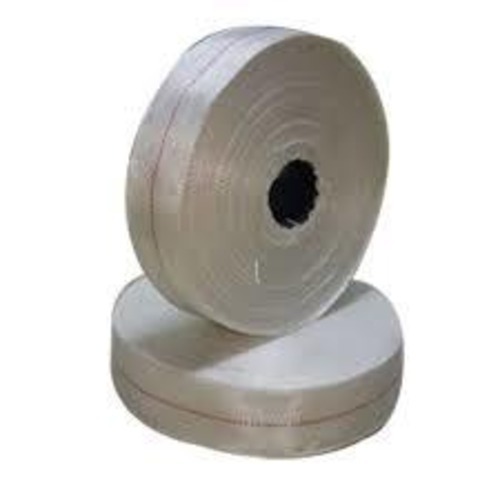
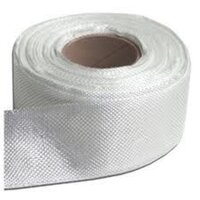
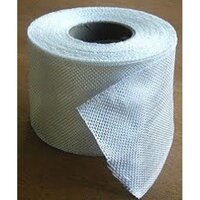
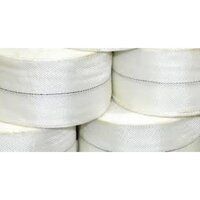
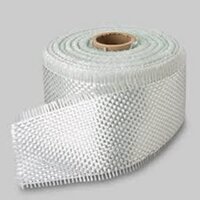
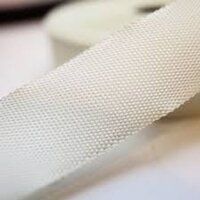







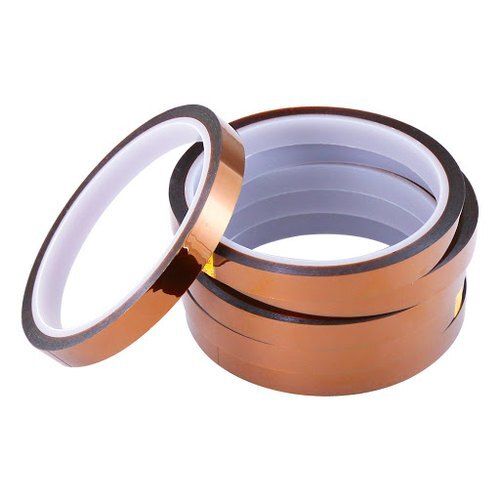

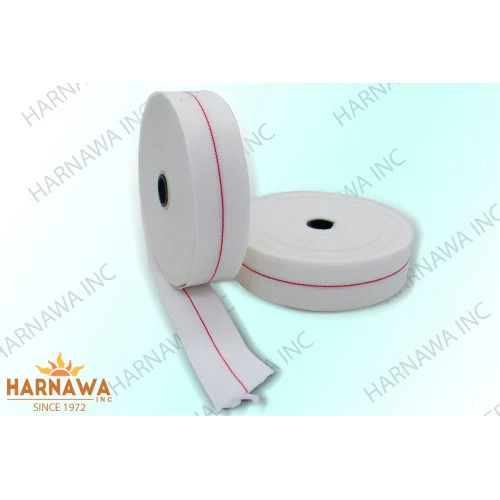
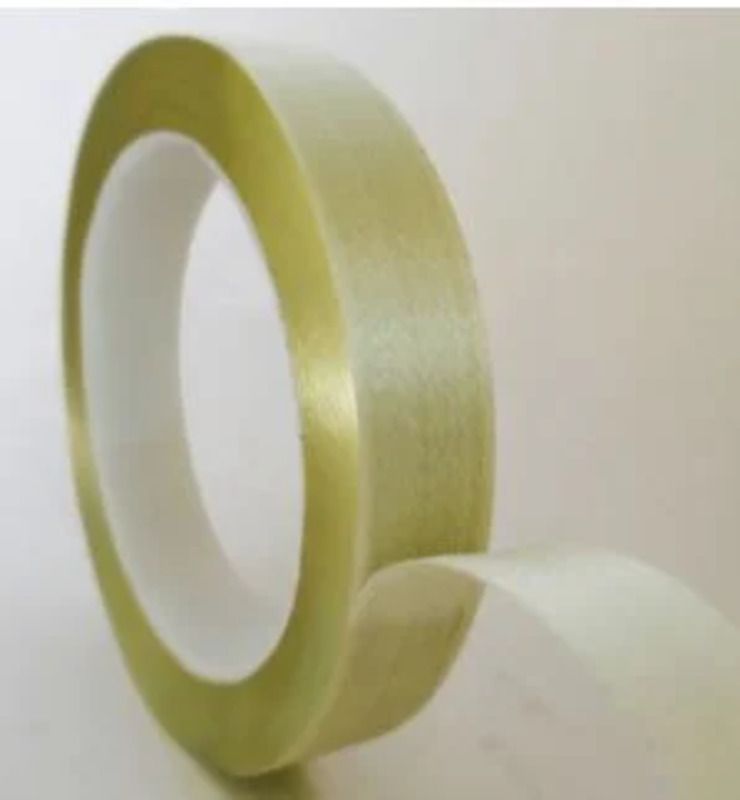

 Send Inquiry
Send Inquiry Send SMS
Send SMS Call Me Free
Call Me Free
 English
English Spanish
Spanish French
French German
German Italian
Italian Chinese (Simplified)
Chinese (Simplified) Japanese
Japanese Korean
Korean Arabic
Arabic Portuguese
Portuguese